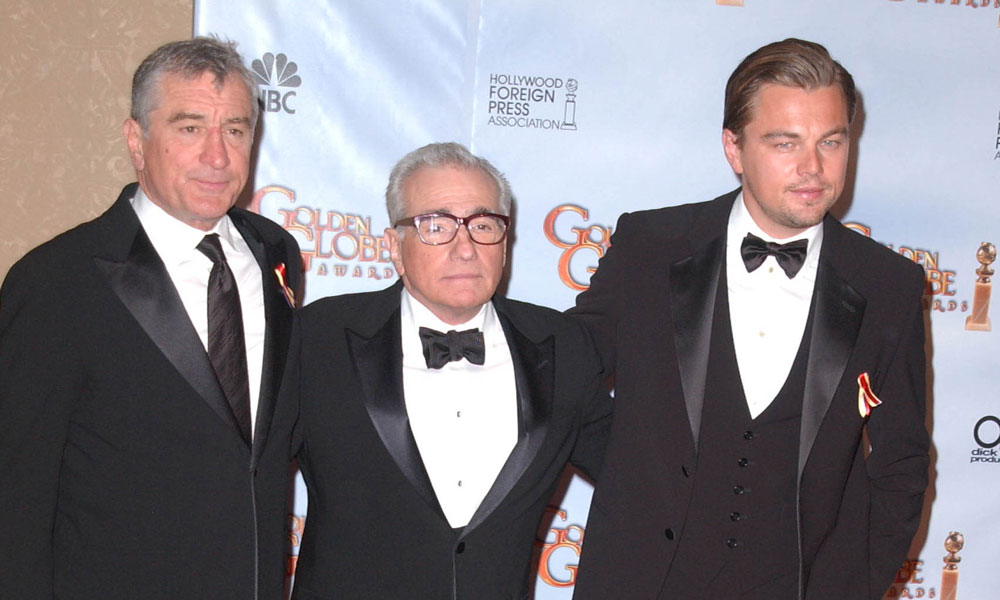Apple’s Original Films May Have to Meet a Higher Standard to Win Oscars
 Credit: MidoSemsem / Shutterstock
Credit: MidoSemsem / Shutterstock
Toggle Dark Mode
A year ago, Apple made history by becoming the first streaming service to win an Academy Award for Best Picture when it took away the top Oscar for CODA, beating out far more established streaming rivals such as Netflix and Amazon.
Apple’s was just one of several first-time accolades for CODA, which also became the first Sundance Film Festival Movie to ever receive the Oscar for Best Picture, the first film to win Best Picture without being even nominated for directing or editing, and the first time a male deaf actor was recognized with an Oscar, which Troy Kotsur received for Best Supporting Actor.
However, following this historic win, and a few other close calls for rival streamers, it seems the Academy may be preparing to clamp down on its rules to prevent movies that air predominantly on streaming services from qualifying for its top awards.
According to Mathew Belloni at Puck, the scuttlebutt is that the Academy is preparing to table one of “the most significant rules changes” in recent history by adding a more stringent theatrical distribution requirement to its best picture eligibility.
According to a plan that is said to be supported by Academy C.E.O. Bill Kramer, and which must still be approved by the 54-member board of governors at its meeting in late April, films will need to play in theaters in 15 or 20 of the top 50 markets in the U.S. to be eligible.
Matthew Belloni
From what Belloni is hearing, the move doesn’t appear to be geared primarily l at blocking streaming services so much as promoting moviegoing in traditional theatres, which have been suffering in the wake of the global health pandemic. The Academy prefers to stay out of the business side of things, so it’s not so much about money as it is about the artistic aspects of ensuring audiences can experience big-budget Hollywood productions the way they were intended to be seen.
Focusing on the Big Screen Experience
That’s far from a new consideration, either. In 2020, Tom Hanks was heartbroken by the artistic compromises that resulted from Greyhound being shown on Apple TV+ instead of in theatres, which had been shut down by COVID-19. By all accounts, Greyhound did astonishingly well on Apple TV+, but even Apple’s 4K Dolby Vision HDR and Dolby Atmos sound can’t rival the theatrical experience — at least not in most people’s homes.
Along the same lines, Hollywood mogul Steven Spielberg, who sits on the Academy’s Board of Governors, spoke out against the idea of streaming movies being eligible for Oscars in 2019 after Netflix’s Roma received a nomination for Best Picture despite only a “token” release in theatres to meet the minimum standards of eligibility.
As things stand now, those rules are somewhat laughable. Under Rule Two of the Academy’s eligibility rules, motion pictures need only be publicly shown at a commercial theatre in Los Angeles for seven consecutive days with three screenings available per day in “a manner normal and customary to theatrical feature distribution practices.” This was relaxed during the pandemic, and the Academy now recognizes runs in five other “qualifying U.S. metro areas,” in addition to L.A., including the five boroughs of the City of New York, the San Francisco Bay Area, Chicago, Miami, and Atlanta.
While the rules state the film must have a theatrical release before appearing anywhere else, there’s no restriction on when it can appear online. It can be the very same day that it appears in theatres — and this is exactly what Netflix has been doing to qualify.
As Belloni notes, Netflix came close to the Best Picture Oscar this year with All Quiet on the Western Front which beat out Babylon for best score and Elvis for best cinematography and production design. In the end, though, the award went to Everything Everywhere All at Once, an A24 film with a more traditional broad theatrical release.
If such a rule change were to be ratified, it would likely affect Netflix far more than Apple or Amazon, which have already committed to a “theatres-first” model for their hit movies. Apple planned to focus on the big screen from the very beginning of Apple TV+. However, most folks forgot about that as the entire theatrical world shut down in the wake of COVID-19.
Apple’s ambitions haven’t changed, though. Recent reports suggest it’s actively courting movie studios and distributors to build partnerships whereby it can release its biggest films not just in the 15 to 20 top U.S. markets the Academy may be looking for but globally.
That’s already a done deal for some of Apple’s biggest films. Martin Scorsese’s Killers of the Flower Moon, which will star Robert De Niro and Leonardo DiCaprio, came to Apple from Paramount with the proviso that the Hollywood studio would handle its distribution worldwide.
For Apple, it’s not just about meeting the Academy’s eligibility rules anyway. While the company definitely wants to win Oscars, even that’s just a path for Apple to be taken seriously as a mover and shaker in Hollywood, which the company hopes will allow it to attract the most prominent talent to create even more blockbuster hits.
[The information provided in this article has NOT been confirmed by Apple and may be speculation. Provided details may not be factual. Take all rumors, tech or otherwise, with a grain of salt.]










